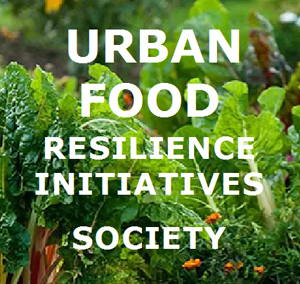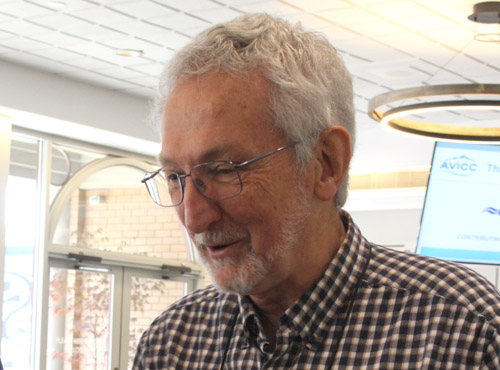
Sunday April 14, 2024 | VICTORIA, BC
by Mary P Brooke, Editor | HOUSING NEWS | Island Social Trends
City of Nanaimo Mayor Leonard Krog has been rather forefront on issues of housing in the last few years.
On this last day of the 2024 Convention of the Association of Vancouver Island Coastal Communities (AVICC), Island Social Trends (IST) caught up with Mayor Krog to get his views on the current housing crisis in BC.
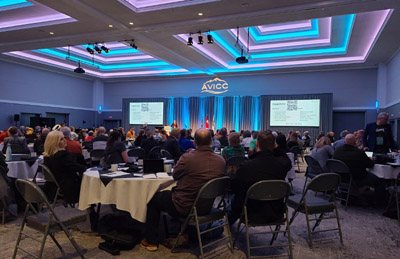
A lawyer by trade, Krog is a former longtime BC MLA (elected in 1991, 2005, 2009, 2013, 2017) who in 2018 chose to leave John Horgan’s NDP government and the provincial governance level to instead focus on issues and proactive change at the municipal local level.
He won the Nanaimo mayor’s seat in November 2018 election and handily won again the 2022 mayoral race in the City of Nanaimo, which promotes a banner brand of being ‘The Harbour City’.
The coastal city’s population is now about 100,000 (up from about 90,000 in 2016, or about 10%) and is continuing to grow. In 2024 the estimated City of Nanaimo population is 108,457.
BC has seen an overall population-wide increase of 300,000 people in the last three years which sees the province grappling to handle the related impacts on housing, schools and health-care.
Here’s how the interview went today:
IST: You’ve been pretty high profile on homelessness and affordable housing in general. Where do you feel the BC Government can do their next, best, move?
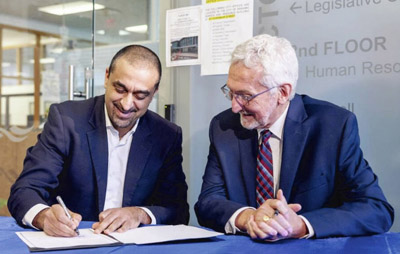
Krog: “The best move is for government to acknowledge what we all know. We are in the perfect storm of a housing crisis for a series of reasons. And people are waiting for government to step up and take a strong leadership role. They’re doing much more than is happening historically but we’ve got a long ways to go and there are a lot of people now who need housing today, not tomorrow, not next year.”
IST: Do you feel that general community desperation is allowing government to step in and do a bit more?
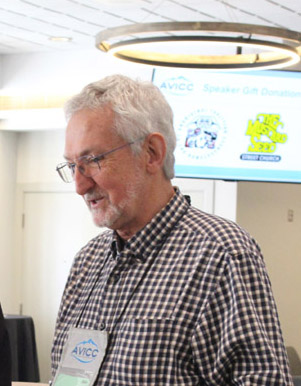
Krog: “I wouldn’t describe it as community desperation. There is community recognition and need and there are opportunities for the government to take the kind of bold leadership that historically existed in this country. And which fell out of favour as people turned to anti-government views about everything let alone housing.”
IST: In the last week or two we’ve been hearing an old argument, saying the federal government has no role in housing. How do you respond to that?
Krog: “We had a national housing strategy until the early 90s when the federal government was trying to balance the budget at the screaming voices of Alberta and Preston Manning in particular. And they responded. But that meant abandoning a national housing strategy. And our current crisis doesn’t all relate back to that decision but that decision had an extremely negative impact. And any policy change sometimes takes a while to become clear. It’s clear to us now that we need and should have had — for the last 30 years — a national housing strategy which involves Ottawa very much.”
IST: What role has the mortgage sector played in the current housing crisis?
Krog: “The condo development is a natural outcome of market demand and the realization that we are very much an urban country. That the pride and hope of a single family dwelling for every Canadian family is not terribly realistic in a world facing an environmental crisis. That fact that we’re now seeing incredible increases in the number of apartment buildings being built as opposed to condominiums tells you there’s a recognition by the private sector that we have an affordability crisis. And that people can manage rent but they’re not going to be able to manage a mortgage or accumulate a downpayment.”
IST: Do you feel we’re seeing a transition to people being renters and staying as renters?
Krog: “I don’t think so. I think this country is wealthy enough and has the capability and has had it historically to allow people to enjoy private home ownership. I’m still a great believer in it. I think it is an important aspect of a successful society. Having said that, there has always been a role for renters in society. In Europe it’s very different. The expectation you may very well be renters generation after generation and in the same place. And there’s government policy in place to do that. This country was colonized on the basis that people would have access to land. It is a powerful drive. Pearl Buck’s out of fashion. But as I remember when one of the lead characters said something to the effect of ‘a man without land is nothing’ (referencing the 1931 novel The Good Earth by Pearl S Buck)”.
IST: But is land and house ownership sustainable in today’s economy?
Krog: “I don’t know that it’s sustainable. But we’ve still got a fair bit of land and there are things we can do. And that land may in fact be a condominium or a townhouse. It may not necessarily be an acre lot in Oak Bay with a mansion.”
IST: On the aspect of urban food resilience… a lot of buildings such as condos and townhomes don’t have room to do that. Do you feel the development community needs to be directed to support that?
Krog: “I think the development community can be directed to support that kind of food resilience. But I’ve also lived long enough to recognize that growing food is challenging, it’s hard, it takes a lot of attention. Not withstanding the horrible increase in food prices for many Canadians — given the amount of food we waste — it tells me people don’t value food enough yet to produce it themselves in the way that historically we would have.”






